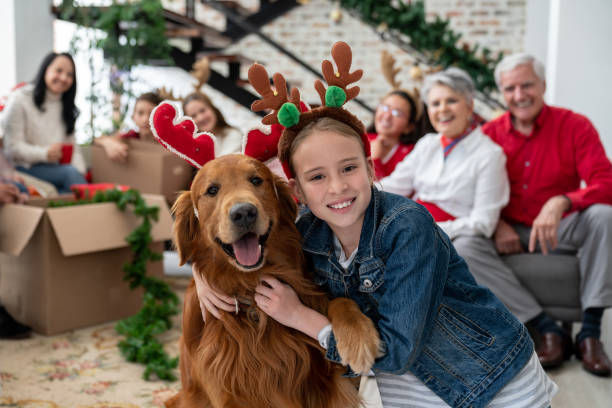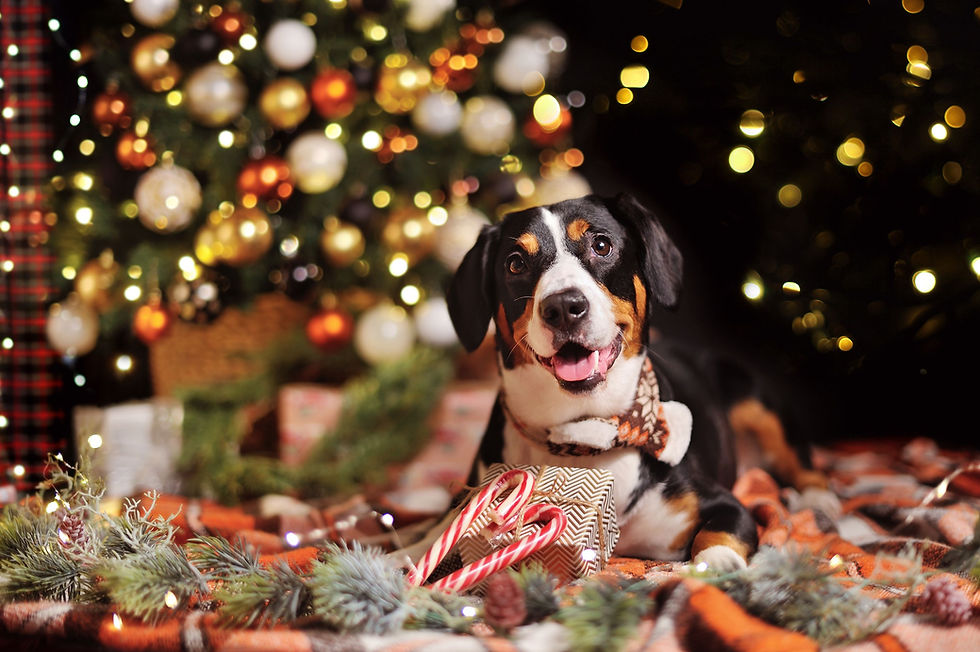Tips to Keep Your Pets Safe This Labor Day Weekend
- Aardvark Animal Hospital
- Aug 29, 2023
- 5 min read
Updated: Oct 17, 2025
As we gear up to celebrate Labor Day, it's important to remember that while this holiday often marks the end of summer fun, it can also pose some potential hazards for our beloved pets. The festivities, gatherings, and even the food associated with Labor Day can sometimes present risks to your furry family members. Here are some essential tips to help you ensure a safe and enjoyable Labor Day celebration for your pets.

Beware of BBQ Foods: The barbecue is a hallmark of Labor Day, but many of the foods we enjoy can be harmful to pets. Avoid sharing human foods with your pets, especially items like onions, garlic, grapes, raisins, chocolate, and anything sweetened with xylitol. These foods can be toxic and lead to serious health issues. Remind guests not to feed your pets!
*While on the subject of food...please remember that corn cobs, leftover meat bones, or items like peach pits could cause choking or blocked intestines. For your pet's safety, make sure trash goes in the trash, in a secure bin.
Keep Alcohol Away: Alcoholic beverages are not safe for pets. Even a small amount of alcohol can have serious effects on their health, including alcohol poisoning. Keep all drinks out of their reach to prevent accidental ingestion.
Be Mindful of Sun Exposure and Heat: If you're spending time outdoors, make sure your pets have a shaded area to rest in and never leave them unsupervised while outside for prolonged periods of time. Pets can get sunburned or suffer heat stroke.
*Common symptoms of heat stroke include excessive panting, red-colored gums, decreased urine production, vomiting, tremors, tissue bruising, black tarry stool, bloody vomit, change in mentation, wobbly gait, and inability to walk. If these symptoms are present, your pet should be seen by a veterinarian immediately.
Hydration is Key: Hot weather and outdoor activities can lead to dehydration. Ensure that your pets have access to fresh, clean water at all times. If you're spending time outdoors, bring a portable water bowl and offer water breaks frequently.
Approaching with Caution: All pets react differently when their routine changes or when other pets or people are in their space. Never assume your pet will react appropriately when dealing with dogs, children, family members, or strangers. Just like us, pets have different personalities. Some dogs may be shy or fearful around others. Always ask others to approach your pet slowly and avoid further contact if your pet seems stressed or wary. Ask the other pet parent if it's okay for your dog to approach theirs, and watch for signs of discomfort. While many pets are great with kids, not all are comfortable. Teach kids to approach gently, give your pet space, and always ask permission from you before petting. Even the friendliest pet can react badly when uncomfortable.
Travel Safety: Animals should never be loose in the car. They should be kept in kennel, carrier, or harnesses to keep them safe during car rides. If you are traveling and need a break, DO NOT leave your pets unattended in the car! Whether you are parked in the shade or leave your windows cracked, the temperature inside your vehicle is much higher than outside. For example, when it is 80 degrees outside, your vehicle may reach up to 123 degrees inside! Just a few minutes of these temperatures can be devastating to your pet's health and wellbeing.
* Don't forget your pet's prescriptions!
Limit Their Exposure to Loud Noises: Labor Day weekend often includes fireworks displays and other loud celebrations. Dogs and cats have sensitive hearing, and these loud noises can be distressing for them. Many pets go missing over the holiday due to fear, so create a safe and quiet space in a secure room indoors, away from the noise. Consider playing soothing music to drown out the sounds of fireworks.
Identification is Crucial: With gatherings, open doors, loud noises, and additional people in their home, there's a higher risk of pets escaping and getting lost. Remind guests to watch doors when coming in and out to prevent your dog or cat from slipping out. Ensure your pets are wearing collars with identification tags and that their microchip information is up to date. This can greatly increase the chances of being reunited if they do go missing.
Watch for Hot Pavement: If you have your pet in a warm area, be cautious of hot pavement or rocky surfaces. These can cause burns or discomfort to your dog's paw pads. Plan activities during cooler parts of the day and consider using dog booties for protection.
Safe Water Play: While some dogs are natural swimmers, not all are comfortable in the water. Introduce your dog to the water gradually, and never force them to swim. If you're near a lake, river, pool, or other bodies of water, monitor your dog closely to ensure they don't go too far out or get caught in currents.
*Life Jacket Safety: If your dog will be joining you in a pool or on a boat or kayak, invest in a well-fitting and appropriate dog life jacket. Even strong swimmers can benefit from the extra buoyancy and visibility these jackets provide.
Going Camping? Maintain Routine: Camping can be exciting, but it's important to maintain your dog's routine as much as possible. Stick to their regular feeding schedule and bring familiar items like their bed or favorite toys to provide comfort in the new environment. Don't forget their prescription medication! Tips to follow...
*Secure Campsite Boundaries: Before setting up camp, check for any gaps or openings in the campsite that your dog could slip through. This will prevent them from wandering off or encountering hazards outside the designated camping area.
*Leash Up Around Wildlife: Wildlife encounters can be unpredictable and potentially dangerous for both your dog and local animals. Keep your dog on a leash and under control at all times to avoid confrontations with wildlife and to minimize their impact on the ecosystem.
*Be Wary of Waterborne Hazards: Natural bodies of water can sometimes contain harmful bacteria, parasites, and algae that can be harmful to dogs. Prevent your dog from drinking from stagnant water sources, and if possible, rinse them off thoroughly after swimming to remove any potential contaminants.
Tick and Flea Prevention: Outdoor and camping environments can be ripe breeding grounds for ticks and fleas. Ensure your dog is up to date on preventive medications and perform regular tick checks after hikes or walks.
Chemical Hazards: Protect your furry friends from chemical hazards! Sprays, lotions, gels, sunscreens, and insect repellant may be safe for humans but these products can often be toxic when applied or eaten by pets. Keep household cleaners, pesticides, and toxic plants out of reach.
By following these tips, you can make sure that your furry companions enjoy the Labor Day festivities as much as you do, without putting their health and safety at risk. Have a wonderful and pet-friendly Labor Day!



Comments